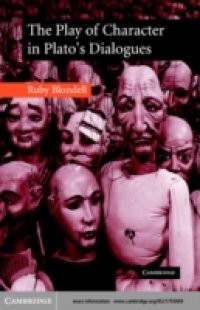This book attempts to bridge the gulf that still exists between 'literary' and 'philosophical' interpreters of Plato by looking at his use of characterization. Characterization is intrinsic to dramatic form and a concern with human character in an ethical sense pervades the dialogues on the discursive level. Form and content are further reciprocally related through Plato's discursive preoccupation with literary characterization. Two opening chapters examine the methodological issues involved in reading Plato 'as drama' and a set of questions surrounding Greek 'character' words (especially ethos), including ancient Greek views about the influence of dramatic character on an audience. The figure of Sokrates qua Platonic 'hero' also receives preliminary discussion. The remaining chapters offer close readings of select dialogues, chosen to show the wide range of ways in which Plato uses his characters, with special emphasis on the kaleidoscopic figure of Sokrates and on Plato's own relationship to his 'dramatic' hero.

